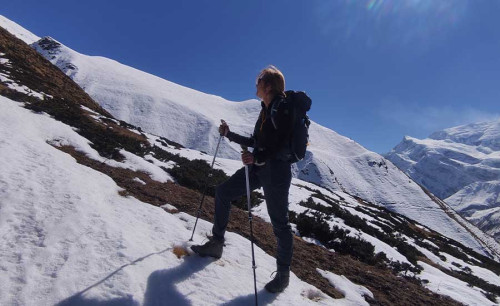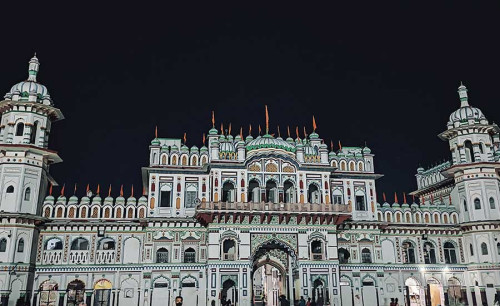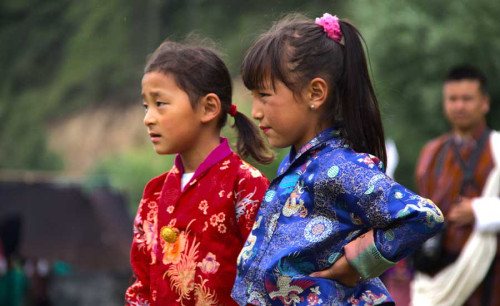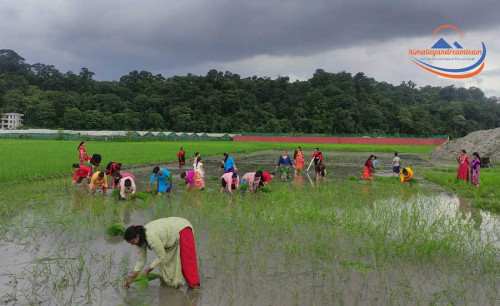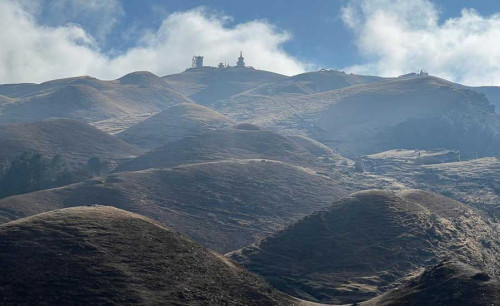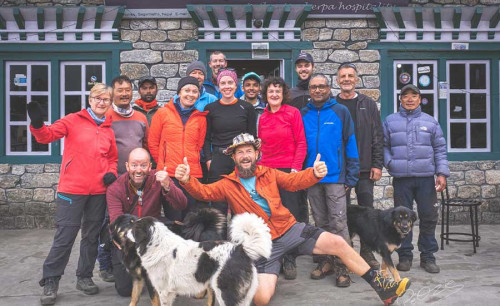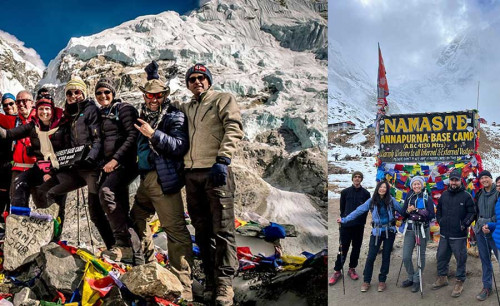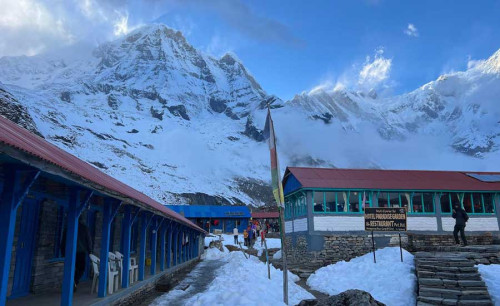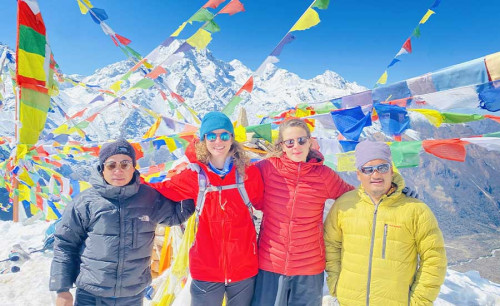Can Kids Do the Everest Base Camp Trek?
Published On : 3rd Sep, 2024 By Himalayan Dream Team

The Everest Base Camp trek is one of the most thrilling and iconic adventures in the world, offering breathtaking views of the Himalayas and a chance to stand in the shadow of Mount Everest. While it’s often seen as a trek for seasoned hikers, it can be a rewarding experience for families, including kids, with proper planning. Children who are physically fit and enjoy outdoor activities can successfully complete the Everest Base Camp trek, especially when parents pace the journey to accommodate their needs. This trek not only provides an incredible opportunity for kids to explore nature, but it also fosters resilience, builds confidence, and creates unforgettable family memories.
When deciding to take your kids on the Everest Base Camp trek, safety and preparation should be the top priorities. Ensuring they are acclimatized to the altitude and having a slower itinerary will help minimize the risk of altitude sickness. Additionally, educating your children about the local culture and environment turns the trek into a learning experience, where they can gain insights into the Himalayan region, its people, and its ecosystems. With the right approach, trekking to Everest Base Camp with kids becomes a family adventure that enriches their understanding of the world, offering not only physical challenges but also invaluable life lessons.
Why Should You Take Your Kids on the Everest Base Camp Trek? Benefits and Reasons Explained
| Reasons | Description |
|---|---|
| Nature Exploration | The trek showcases breathtaking views of the Himalayas, with glaciers, valleys, and towering peaks. Kids can explore diverse flora and fauna, inspiring interest in nature and related sciences. |
| Physical Activity | Everest Base Camp trek encourages physical fitness and stamina. It builds mental determination and the foundations of a healthy lifestyle. |
| Educational Value | Children can learn geography, geology, altitude effects, local ecosystems, and the historical significance of Everest during the trek, providing an enriching educational experience. |
| Family Bonding | Shared challenges during the trek foster teamwork and camaraderie among family members, creating strong, lasting memories and strengthening family ties. |
| Taste Exploration | Kids are introduced to new flavors and local culinary traditions, broadening their palates and appreciating foods that may not be available in their home country. |
| Personal Growth | The trek promotes resilience, emotional development, and adaptability in children by challenging them to push their limits and overcome obstacles. |
| Climbing Achievement | Reaching Everest Base Camp gives children a sense of accomplishment and boosts their confidence, teaching the value of setting and achieving goals. |
| Cultural Understanding | Exposing children to new cultures during the trek fosters tolerance, wisdom, and global brotherhood by understanding diverse worldviews and lifestyles. |
How Difficult Is the Everest Base Camp Trek with Kids? A Comprehensive Guide for Families
-
High Altitude: Climbing to an elevation of 5,364 meters (17,598 feet) means reduced oxygen levels, which can make breathing difficult for both adults and children, emphasizing the need for proper acclimatization.
-
Altitude Sickness: Kids are also susceptible to altitude sickness, experiencing symptoms such as headaches, nausea, and fatigue, which may require slower pacing, frequent breaks, and extra care.
-
Long Trekking Days: Daily treks can range from 5 to 8 hours, which may be especially tiring for children. Breaks and shorter days are necessary to keep them motivated and ensure their stamina holds up.
-
Unpredictable Weather: Weather conditions in the Everest region change rapidly, with possible shifts from sunny skies to strong winds, rain, or even snow, posing a challenge for kids unaccustomed to such extremes.
-
Cold Nights: Temperatures drop significantly at higher altitudes, especially during the night, requiring extra preparation with warm clothing and sleeping gear to keep children comfortable.
-
Challenging Terrain: The uneven, rocky trails can be hard to navigate for kids, particularly in steep sections. Good physical conditioning and supervision are important to ensure safe passage.
-
Basic Amenities: Facilities such as bathrooms and showers are limited along the trek, which might be difficult for kids to adjust to, especially when far from the comforts of home.
-
Physical Fatigue: The physical demands of trekking every day can wear children down. It’s important to build stamina and ensure proper rest and nutrition to keep them energized.
-
Logistical Considerations: Organizing permits, flights, and accommodations for a family, especially with kids, can add extra stress, particularly during busy seasons when resources may be limited.
-
Mental Endurance: The Everest trek can be mentally tough for children, requiring patience, perseverance, and a positive mindset to overcome long trekking days and challenging conditions.
Age Considerations: How Young is Too Young?
Trekking to Everest Base Camp is a remarkable adventure, and while there is no strict age limit for children, most experts recommend that kids be at least 10 years old. At this age, children typically have the physical stamina and mental resilience necessary to tackle the challenging terrain and high altitude. However, some families have successfully completed the trek with younger children, emphasizing the importance of preparation, careful acclimatization, and a slow pace to ensure safety and enjoyment. Assessing your child's fitness level, hiking experience, and ability to adapt to the Everest environment is essential before embarking on this adventure.
One notable achievement in Everest Base Camp history is the record held by a 3-year-old boy, Montannah Kenney, who became the youngest known person to reach Everest Base Camp in 2018. This extraordinary feat demonstrates that with proper planning, guidance, and the right support, even young children can complete the trek. Families considering this journey should focus on gradual acclimatization and preparing kids for the physical and mental challenges of high-altitude trekking to ensure a safe and successful experience.
How to Prepare Kids for the Everest Base Camp Trek?
| Preparation Steps | Details |
|---|---|
| Health Check-ups | Begin with a comprehensive medical check-up for your family, ensuring that all members, including children, are physically fit to handle the altitude and physical challenges of the Everest Base Camp trek. |
| Educational Preparation | Educate your children about the trek environment, local culture, and safety guidelines. This will help them appreciate the experience and follow necessary precautions during the journey. |
| Age and Health Considerations | While there is no strict age limit, it’s advisable not to take children under 10 years old. Ensure that your kids are physically and mentally prepared for the demanding trek to Everest Base Camp. |
| Acclimatization | Children are more vulnerable to altitude sickness. Incorporate enough rest days for proper acclimatization, and allow kids to walk at a comfortable pace to avoid altitude-related health issues. |
| Expert Guidance | Choose an experienced trekking agency with expertise in family treks. Guides familiar with children’s needs can adjust the pace and itinerary accordingly, ensuring a safe trek for your family. |
| Proper Gear | Ensure your children have the right trekking gear, including warm clothing, sturdy footwear, and other essentials. Well-fitted equipment will enhance both safety and comfort during the trek. |
| Flexible Itinerary | Select a trek with a flexible itinerary that allows for adjustments based on the children’s needs. This includes shorter trekking days and additional rest periods when required. |
| Weather Considerations | Plan your trek during the ideal seasons of spring or autumn, when weather conditions are stable and skies are clear, making the trek more manageable for children. |
| Adequate Insurance | Make sure your insurance covers high-altitude helicopter evacuation and medical treatment. Teach your kids to be attentive to their bodies and to report any unusual feelings or symptoms immediately. |
Ensuring Safety on the Trail
Parents always prioritize the safety and well-being of their children, especially when embarking on adventurous journeys like the Everest Base Camp trek. Ensuring a safe environment for your kids during the trek requires careful planning and preparation. Here are some essential safety measures to help you create a secure and enjoyable trekking experience for your family.
-
Ensure Reliable Communication: Equip your family with communication devices, such as prepaid SIM cards from Ncell or NTC, which cover most of the trek. In areas without mobile coverage, consider carrying a satellite phone with a long battery life for emergencies.
-
Choose Experienced Tour Operators: Hire trekking guides and staff experienced in family treks who understand children’s needs. Opt for guides trained in first aid and emergency response to ensure safety throughout the journey.
-
Monitor Weather Conditions: Stay updated with local weather forecasts before and during the trek, as weather in the Himalayas can change rapidly. Prepare for different weather conditions and make informed decisions based on updates.
-
Select Proper Trekking Gear: Ensure your kids have appropriate trekking gear, including warm clothes, sturdy boots, and other essentials. Test the gear beforehand to ensure a proper fit and comfort during the trek.
-
Provide Nutritious Food and Safe Water: Pack nutritious, vegetarian meals for the trek due to hygiene concerns with meat. Carry dietary supplements such as protein bars and ensure you have enough boiled water for hydration, avoiding untreated local water sources.
-
Plan Rest Breaks: Allow for sufficient rest periods during the trek to prevent overexertion. Be mindful of signs of fatigue in your children and adjust the pace or itinerary to incorporate additional rest days when needed.
-
Carry a First Aid Kit: Be prepared for minor injuries by bringing a first aid kit with blister treatments, basic medications, and altitude sickness remedies. This helps manage any minor health issues on the trail.
-
Educate Your Children: Teach your kids about the potential risks of high-altitude trekking. Ensure they understand the importance of hydration, recognizing symptoms of altitude sickness, and communicating discomfort immediately.
The Benefits of Trekking to Everest Base Camp with Kids
-
Boosts Physical Fitness: Trekking helps kids build strength, stamina, and overall fitness while enjoying the great outdoors.
-
Encourages Resilience: The challenges of the trek teach children to overcome obstacles and develop mental toughness and perseverance.
-
Fosters a Love for Nature: Experiencing the stunning beauty of the Himalayas firsthand cultivates an appreciation for nature and the environment in children.
-
Enhances Cultural Understanding: Kids gain exposure to the unique Sherpa culture, local traditions, and diverse communities along the trekking route.
-
Strengthens Family Bonds: Trekking together creates a strong sense of camaraderie and teamwork, allowing families to bond over shared experiences and challenges.
-
Promotes Personal Growth: The trek encourages kids to step out of their comfort zone, adapt to new environments, and gain self-confidence.
-
Develops Problem-Solving Skills: Facing real-world challenges like navigating terrain and adjusting to high altitudes improves children's problem-solving abilities and adaptability.
-
Offers Educational Value: Children learn about geography, ecosystems, and the importance of altitude acclimatization, adding educational depth to the adventure.
-
Instills a Sense of Achievement: Reaching Everest Base Camp instills a great sense of accomplishment, boosting kids' self-esteem and motivation to achieve more goals.
-
Creates Lifelong Memories: Trekking through one of the world’s most iconic regions as a family creates lasting memories that children will treasure for a lifetime.
Finally,
Yes, kids can do the Everest Base Camp trek, but it requires careful planning, preparation, and attention to safety. With the right approach, trekking to Everest Base Camp can be a life-changing experience for both you and your children, offering them a taste of adventure and the thrill of achieving something truly remarkable.
Recent Posts
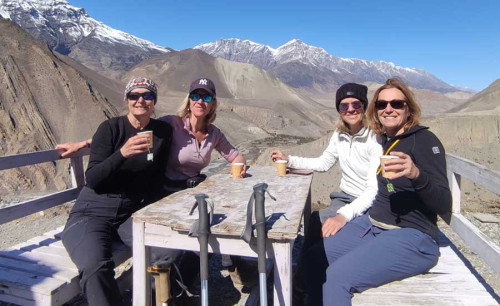
9th Feb, 2026
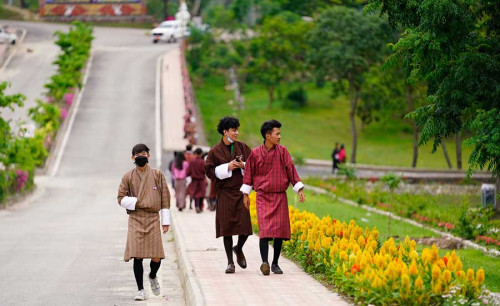
18th Jan, 2026
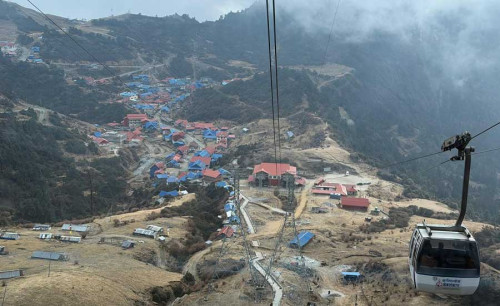
11th Jan, 2026
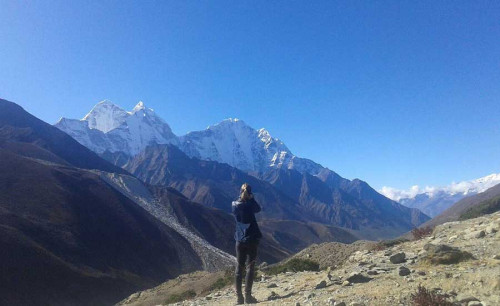
28th Dec, 2025
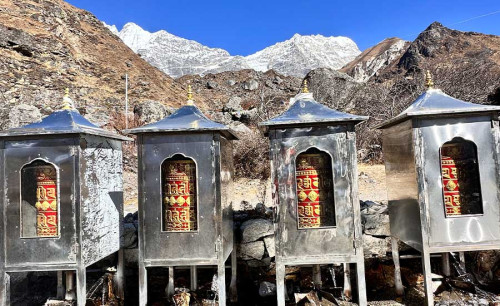
2nd Dec, 2025
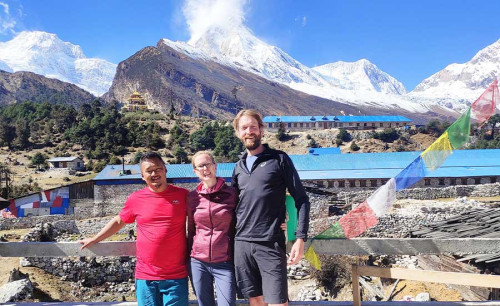
24th Nov, 2025
